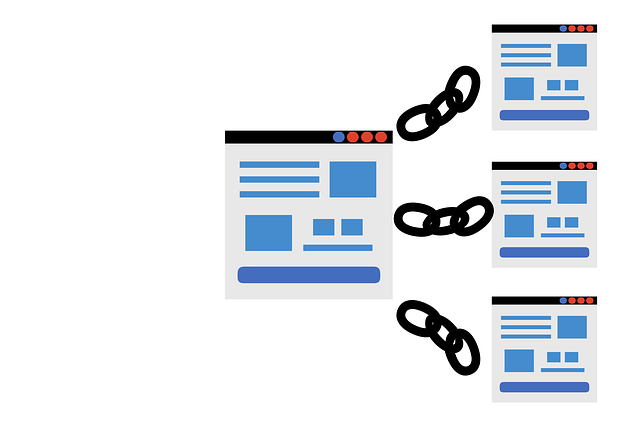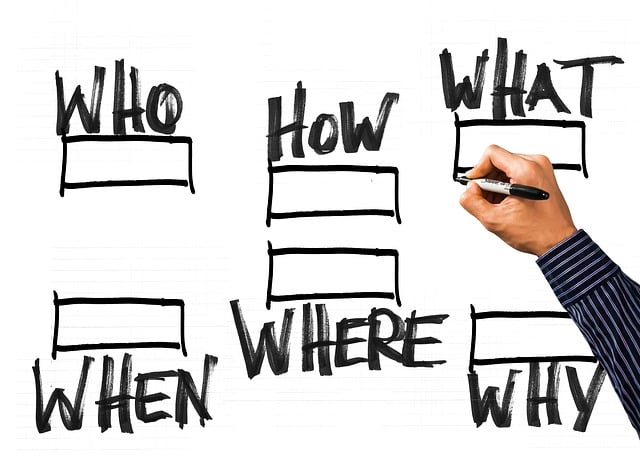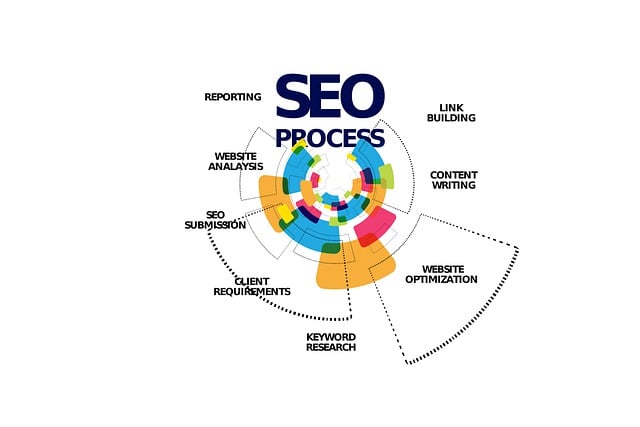Title tag optimization methods
Importance of Title Tags in SEO
Title tags play a crucial role in the world of SEO by acting as a concise and descriptive representation of a webpage’s content. These meta elements not only provide valuable information to search engines about the relevance of a page but also influence how users perceive and interact with search results. Given their prominent display on search engine results pages (SERPs), title tags serve as the first point of contact between a website and potential visitors, making them a vital component of any SEO strategy.
In the vast landscape of the internet, where competition for visibility is fierce, optimizing title tags can significantly impact a website’s organic search performance. By strategically crafting title tags with relevant keywords and compelling language, webmasters can improve their chances of ranking higher in search results and attracting click-throughs from users. The importance of title tags in SEO cannot be understated, as they not only enhance a website’s discoverability but also contribute to establishing its authority and credibility within its niche.
Understanding the Role of Title Tags in Search Engine Rankings
Title tags play a crucial role in determining a webpage’s search engine ranking. They provide search engines with a concise summary of the content on a page, helping algorithms understand the relevance and context of the information presented. By including relevant keywords in title tags, website owners can signal to search engines what their page is about, increasing the likelihood of appearing in relevant search results. In essence, title tags act as the first impression of a webpage to search engines and users alike, influencing click-through rates and overall visibility in search engine rankings.
When crafting title tags for SEO purposes, it is imperative to strike a balance between incorporating relevant keywords and creating compelling, click-worthy titles. The main objective is to attract both search engines and users by accurately summarizing the content of the page and enticing users to click through. A well-optimized title tag not only improves search engine rankings but also enhances user experience by providing a clear indication of what to expect on the webpage. Therefore, understanding the pivotal role that title tags play in search engine rankings is fundamental for any successful SEO strategy.
Key Elements to Include in a Title Tag for Optimization
Title tags play a crucial role in optimizing a webpage for search engines. To ensure maximum visibility and relevance, it is essential to include key elements in the title tag. Firstly, the primary keyword or key phrase that accurately reflects the content of the page should be placed towards the beginning of the title tag. This helps search engines understand the primary focus of the page and improves chances of ranking for relevant searches. Additionally, incorporating the brand name towards the end of the title tag can help enhance brand recognition and trust among users.
Furthermore, keeping the title tag within the recommended length of 50-60 characters is vital to ensure that the full title displays properly in search engine results. Using relevant modifiers such as location, action words, or descriptive terms can provide additional context to the title tag and attract more clicks from users. It is also beneficial to avoid keyword stuffing and instead focus on creating a concise, clear, and compelling title that accurately represents the content of the webpage. By including these key elements in a title tag, website owners can improve their SEO performance and drive more organic traffic to their site.
Best Practices for Crafting Effective Title Tags
Crafting effective title tags is a crucial aspect of optimizing your website for search engines. It is important to keep title tags concise, typically between 50-60 characters, to ensure they display properly in search results. Including relevant keywords near the beginning of the title tag can help improve visibility and attract the right audience to your site. Additionally, it is recommended to create unique title tags for each page on your website, as this can enhance user experience and SEO performance.
Incorporating your brand name at the end of the title tag can help establish brand recognition and trust with users. Avoiding clickbait or misleading titles is essential to maintain credibility and ensure visitors find your content relevant to their search queries. Utilizing action-oriented language and conveying the main topic of the page clearly in the title tag can entice users to click through to your website. By following these best practices, you can create compelling title tags that improve your site’s visibility and drive organic traffic.
Common Mistakes to Avoid in Title Tag Optimization
One common mistake to avoid in title tag optimization is using generic or vague titles that do not accurately represent the content of the webpage. When title tags lack specificity, they fail to provide search engines and users with clear information about the page’s topic, causing them to be less likely to click through to the site. It is essential to craft title tags that are descriptive, concise, and reflective of the primary keyword and content of the page to maximize visibility and click-through rates.
Another mistake to steer clear of is keyword stuffing in title tags. While incorporating relevant keywords is crucial for SEO, overloading title tags with excessive keywords can lead to a poor user experience and potential penalties from search engines. Keyword stuffing not only makes title tags appear spammy and unprofessional but also diminishes the overall effectiveness of the optimization efforts. Instead, focus on using a few strategic keywords naturally within the title tag to maintain readability and relevance while enhancing search engine visibility.
How to Conduct Keyword Research for Title Tags
When conducting keyword research for title tags, it is crucial to start by understanding the core topics and themes of your website or content. Begin by brainstorming relevant keywords that align with your content and target audience. Utilize keyword research tools such as Google Keyword Planner, SEMrush, or Ahrefs to identify high-volume and low-competition keywords that can be integrated into your title tags.
Analyze your competitors’ title tags to gain insights into which keywords and phrases are driving traffic to their sites. By examining their strategies, you can uncover valuable keyword opportunities and refine your own approach. Additionally, consider long-tail keywords that are specific and targeted to your content niche, as they can help capture more qualified traffic. Remember to prioritize keywords that are not only relevant to your content but also align with user search intent to maximize the effectiveness of your title tags.
The Impact of Title Tag Length on SEO Performance
When it comes to SEO performance, the length of a title tag plays a crucial role in determining search engine rankings. Title tags that are too short may fail to provide enough information to both search engines and users, leading to lower visibility and click-through rates. Conversely, excessively long title tags risk being truncated in search engine results, potentially losing out on valuable keywords and compelling messaging. Striking the right balance between brevity and informativeness is key to optimizing title tags for improved SEO performance.
In the realm of title tag optimization, industry experts recommend keeping title tags between 50-60 characters to ensure they fully display in search results. This character count guideline aligns with the space allotted for title tags on search engine result pages, maximizing visibility and enhancing the likelihood of attracting clicks. Crafting concise yet descriptive title tags not only aids search engines in understanding the content of a webpage but also entices users to click through by offering a clear preview of what the page has to offer. By adhering to optimal title tag length practices, website owners can enhance their SEO performance and improve their online visibility.
Mobile-Friendly Title Tag Optimization Strategies
With the increasing dominance of mobile devices in online searches, optimizing title tags for mobile-friendliness has become crucial for SEO success. When crafting title tags for mobile optimization, it is essential to keep them concise and to the point. Mobile screens have limited space, so ensuring that the title tag is not truncated on smaller screens is vital to maintain visibility and click-through rates. Utilizing relevant keywords near the beginning of the title tag can also enhance mobile SEO performance, as users tend to focus on the first few words when scanning search results on their mobile devices.
Additionally, incorporating local identifiers in title tags can further boost mobile search visibility, especially for businesses targeting geographically specific audiences. By including location-based keywords or phrases in the title tags, businesses can cater to users performing mobile searches with local intent. This strategy aligns with the trend towards personalized search results, as search engines increasingly prioritize delivering relevant content based on the user’s location. In essence, optimizing title tags for mobile devices not only enhances user experience but also strengthens the overall SEO strategy for improved organic traffic and conversions.
Utilizing Schema Markup for Enhanced Title Tag Optimization
Schema markup is a powerful tool that can greatly enhance the optimization of title tags on a website. By implementing schema markup, you can provide search engines with additional context about the content of your web pages, helping them understand the relevance of your title tags to specific search queries. This structured data markup allows search engines to display rich snippets in search results, which can increase click-through rates and improve the overall visibility of your website.
When utilizing schema markup for title tag optimization, it is important to select the most appropriate schema types that align with the content of your web pages. By choosing relevant schemas such as Article, FAQ, Product, or Organization, you can ensure that search engines correctly interpret the information provided in your title tags. Additionally, incorporating schema markup can help search engines better understand the different elements of your web pages, such as the author, publication date, product price, and more, leading to improved search engine rankings and increased organic traffic.
Analyzing Competitor Title Tags for Inspiration
When striving to enhance your SEO efforts, analyzing competitor title tags can provide valuable insights and inspiration for crafting your own. By examining the title tags of competitors within your industry, you can gain a better understanding of the keywords they are targeting, their formatting choices, and any unique selling points they are highlighting. This competitive analysis can help you identify gaps in their strategies that you can capitalize on, as well as discover innovative approaches that you can adapt to suit your own brand.
Furthermore, studying competitor title tags can assist you in identifying trending topics and keywords that are resonating with your target audience. By monitoring the performance of competitor title tags in search engine rankings, you can uncover opportunities to optimize your own title tags to better compete for visibility and engagement. Leveraging this competitive intelligence can empower you to refine your title tag optimization strategy and stay ahead of the curve in the ever-evolving landscape of SEO.
Tools and Resources for Title Tag Optimization
In the realm of title tag optimization, having access to the right tools and resources can make a significant difference in the effectiveness of your SEO strategies. One essential tool is the Google Search Console, which provides valuable insights into how your title tags are performing in search results. By analyzing data such as click-through rates and impressions, you can make informed decisions on optimizing your title tags for better visibility and clickability.
Another indispensable resource for title tag optimization is keyword research tools like SEMrush or Ahrefs. These tools help you identify relevant keywords to target in your title tags, ensuring that your content aligns with what users are searching for. By leveraging these resources, you can stay ahead of the competition and continuously refine your title tag optimization efforts for maximum impact in search engine rankings.
Measuring the Success of Title Tag Optimization Efforts
To assess the effectiveness of title tag optimization strategies, it is imperative to delve into metrics that gauge the impact of these efforts on search engine performance. One of the primary ways to measure success is through monitoring changes in organic search traffic. By analyzing fluctuations in website visits originating from search engines post title tag optimization, one can ascertain the impact of these modifications on visibility and click-through rates. Additionally, tracking keyword rankings before and after implementing title tag optimizations provides valuable insights into the effectiveness of the chosen keywords and their alignment with search intent.
Furthermore, an essential aspect of measuring the success of title tag optimization efforts lies in scrutinizing user engagement metrics. Analyzing metrics such as bounce rate, time on page, and conversion rates following title tag enhancements can offer a comprehensive understanding of how well the optimized title tags resonate with the target audience. By correlating these engagement metrics with variations in title tags, marketers can refine their strategies to drive higher user engagement and ultimately improve SEO performance.
Integrating Title Tags with Meta Descriptions for Maximum SEO Impact
When it comes to maximizing the impact of your SEO efforts, integrating title tags with meta descriptions is crucial. Title tags provide a concise preview of your webpage’s content, while meta descriptions offer a brief summary to entice users to click. By aligning these two elements cohesively, you not only enhance the user experience but also signal to search engines the relevance and value of your webpage.
When integrating title tags with meta descriptions, it is essential to ensure consistency in messaging and keywords between the two. This coherence reinforces the relevance of your content and increases the likelihood of ranking higher in search engine results. Additionally, crafting compelling and informative meta descriptions that complement your title tags can significantly improve click-through rates and attract more organic traffic to your website.
Strategies for Updating and Refreshing Title Tags for Continued Optimization
Regularly updating and refreshing title tags is essential for maintaining a strong online presence and staying relevant in search engine results pages. As search algorithms evolve and user behavior changes, it is crucial to adapt title tags to reflect current keywords, trends, and user intent. By revisiting and revising title tags periodically, website owners can ensure that their content remains visible and competitive in the ever-evolving digital landscape.
A proactive approach to title tag optimization involves monitoring performance metrics, conducting keyword research, and analyzing competitor strategies. By identifying underperforming title tags and exploring new keyword opportunities, website owners can tailor their titles to align with search intent and improve click-through rates. Additionally, testing different variations and incorporating user-friendly language can enhance the effectiveness of title tags and drive more organic traffic to websites.
The Future of Title Tag Optimization in SEO Trends and Innovations.
In the dynamic landscape of SEO, the future of title tag optimization is poised for exciting advancements and innovations. As search engines continue to evolve and prioritize user experience, the role of title tags in guiding both users and search engines will become even more crucial. With the rise of artificial intelligence and machine learning algorithms, the future of title tag optimization will likely involve a deeper understanding of user intent and context, leading to more personalized and targeted search results.
Moreover, as voice search and mobile usage continue to dominate the digital sphere, the optimization of title tags for these platforms will be paramount. Crafting concise and relevant title tags that cater to voice search queries and mobile users will be a key focus for SEO professionals in the coming years. Additionally, with the increasing emphasis on rich snippets and featured snippets in search results, the future of title tag optimization will also entail incorporating structured data and schema markup to enhance visibility and engagement. By staying ahead of these emerging trends and leveraging innovative strategies, businesses can secure a competitive edge in the ever-evolving realm of SEO.






